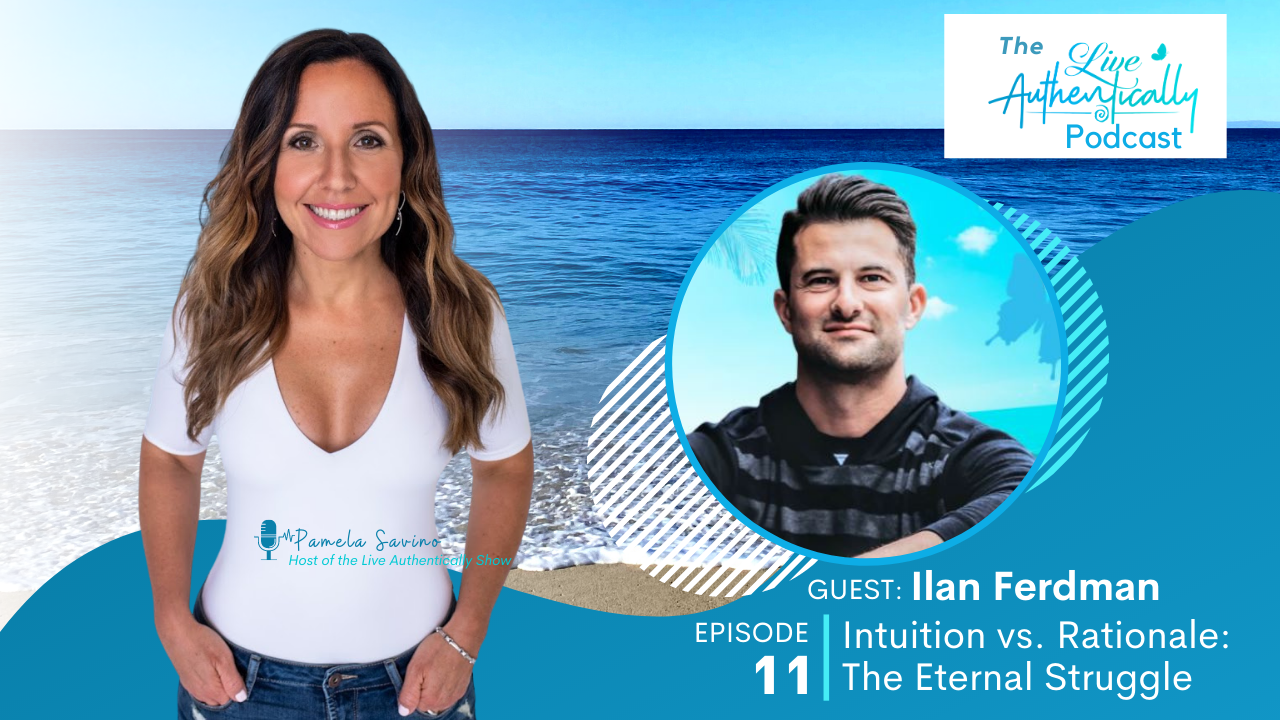It’s something of a cliche to talk about the battle that goes on inside of us – the heart vs. the mind. As children, we’re more intuitive than logical, using our emotions to dictate how we live our lives. As we get older, rationale and critical thinking push that intuition out. But just because that’s the way we’re socially programmed doesn’t mean it’s the right way. In this episode of Live Authentically, we’re talking with Ilan Ferdman of Satori Prime to discover how we tap into the emotional side of ourselves. Check it out here.
When you think about it, society seems to have a love-hate relationship with emotions. For men, there is social pressure to avoid showing anything beyond anger or frustration – to cry is to be weak. For women, showing too much emotion can be an instant label – she’s crazy or hysterical.
On the flip side of things, we use emotions all the time. Companies manipulate our emotions to sell us products. Television shows and movies can make us experience a wide assortment of feelings. Simply put, society has told us that we can only be emotional in specific situations, under precise circumstances. Imagine if someone laughed at a funeral or cried at a little league game – that person would be met with scorn and scrutiny.
In this episode of Live Authentically, I talk with Ilan Ferdman. Ilan and his brother Guy run Satori Prime, a consulting firm that specializes in tapping into a person’s intuition. So many people are out of touch with their hearts that they lose sight of what matters most. Here are some highlights from the episode.
From Whispers to a Roaring Thunder
As a species, we tend to give our intuition little credit. However, if we look back on significant events in our lives – divorces, accidents, traumatic experiences – we can usually see a line of warning signs.
It’s that ping in the back of our mind that something’s wrong. We all feel it, and yet we all seem to ignore it for one reason or another. This person truly loves me. I can push myself through the pain. I’m not really in danger. That ping starts as a whisper, but as long as we continue along that path, it will become a deafening roar that ends once we reach the logical conclusion.
For the human race, we’re in one of those moments right now. As Ilan puts it, the coronavirus pandemic is the Earth telling us that we’ve ignored the warning signs for too long. Hopefully, by experiencing this shared trauma, we can learn to listen to those whispers before something terrible happens. And considering how bad COVID-19 is, that could be devastating.
Intuition is About Happiness; Rationale is About Survival
A huge part of the brain vs. heart battle is the struggle between living and surviving. The mind wants to keep us safe and alive. Multiple studies show that the brain prefers consistency and repetition. Because it’s such a complicated organ, it doesn’t like to form new pathways (i.e., change). So, we stick with what we know and what’s comfortable. To change is too hard.
The heart, on the other hand, is all about fulfillment and energy. Think about a toddler’s emotions. A child can go from ecstatic to severely upset to moderately indifferent in just a few minutes, all with the same intensity. Because the toddler’s brain hasn’t developed enough yet, the heart has all the control. This is also why kids are notorious for getting into trouble or hurting themselves. They haven’t learned the concept of survival yet.
So, as Ilan remarks, if you’re not feeling satisfied or fulfilled in your life, chances are you’re not listening to your heart. Intuition is a powerful tool, and you have it within you. Also, bear in mind that your heart and brain aren’t mutually exclusive. You can be rational and intuitive in your life – you don’t have to pick one over the other.
We talk a lot more about intuition in this episode, and Ilan has plenty of other insights. Be sure to check it out here. You can also find out more about Ilan and Satori Prime at www.satoriprime.com. He has a Facebook group as well, called Personal Development Without the Fluff, so check in there if you can.
